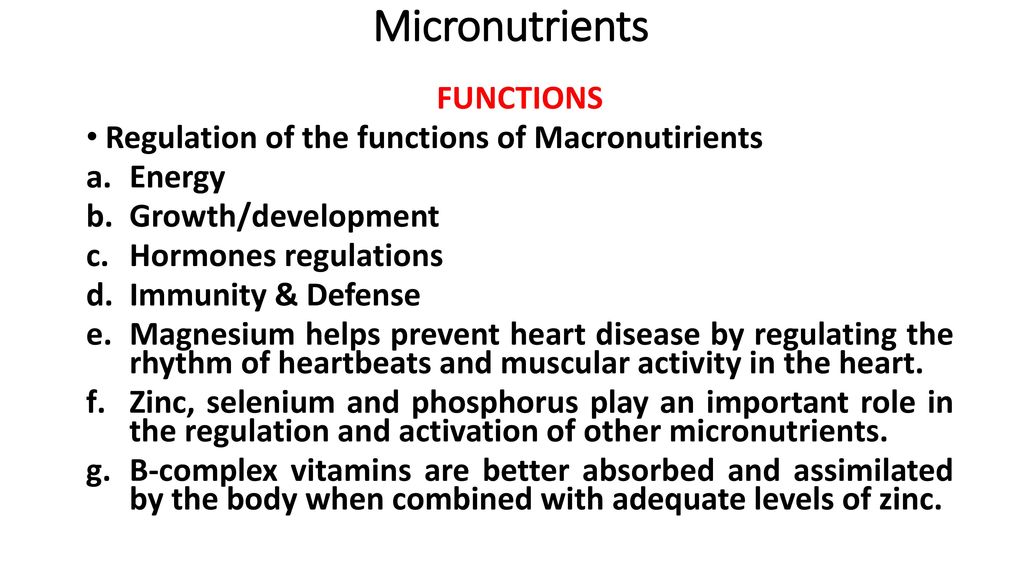
The best way to achieve your athletic goals is by choosing the right sports nutrition program. It is crucial to eat a balanced and nutritious diet. It's common to assume that carbohydrates are essential for athletes, but they're the most important component of a balanced diet. A healthy balance of carbohydrates, protein, and fats will fuel you and help you reach your goals.
Athletes should eat meals at least three hours before a competition or exercise, in order to allow their bodies to digest the food and minimize any gastrointestinal upset. It is crucial to eat a healthy diet rich in carbohydrates, protein and fat. Avoid starchy vegetables and junk foods. Balanced nutrition is key to ensuring you eat lean meats and fruits, vegetables, whole grains, and other healthy foods. These foods are excellent sources of vitamins and minerals. However, they are not great sources for calories.

Before an event, carbohydrates are the most important food that an athlete needs to eat. They are the primary source of energy. Carbohydrates can be found in milk, bread and cereal, as well as grains, fruit and vegetables, and other foods that are high in them. The best way to consume carbohydrates is to eat them in small amounts, and avoid high-fat or high-protein meals. The best results are achieved by eating a high-carbohydrate dinner at least two hour before an event.
A balanced diet should be included for athletes, rich in complex carbs and healthy fats. The ideal diet is comprised of 45% to 66% carbohydrates, 10% to 30% protein, and 25 to 35% fat. Water intake is essential before, during and after any sport. It is important to eat the right foods and at the right times in order to maximize performance and avoid muscle damage and oxidative stress. Supplements are important for athletes to help speed up recovery.
Balanced carbohydrates and fats are the best diet for athletes. The body's primary source of energy is glucose, which is broken down carbohydrates during digestion. It is converted to glycogen, a type fatty that is stored within muscle tissue. This provides an essential source of energy for athletes' workouts. The best way to boost glycogen stores is to eat carbohydrates and fatty food before and after the event.

Besides dietary fiber, athletes should also drink adequate amounts of water. Proper hydration is crucial for optimal health. The body needs a constant supply of fluids and sodium to sustain its activities. This is the best way to avoid muscle cramps, and improve performance. Athletes need to ensure that their diet is balanced with their training. In the case of endurance athletes, this is not easy. It can also cause headaches and cramps.
FAQ
What foods should I avoid when trying lose weight?
Avoid trans fats. Trans fats raise LDL (the bad) cholesterol levels and reduce HDL (the good) cholesterol levels.
Trans fats can also be found in deep-fried food, fast food, packaged bakery goods, snack cakes, as well as other processed foods.
These unhealthy fats cause inflammation which leads to heart disease, diabetes, and other health problems.
Avoid eating foods that contain artificial sweeteners. Artificial sweeteners have been linked to an increase in cancer risk.
These chemicals can be found in soft drinks, chewing gum, and candy bars. They also appear in meat, poultry and eggs.
Artificial sweeteners can be saccharin or cyclamate, sucralose, sorbitol or aspartame.
The American Heart Association suggests that you avoid these chemicals as they can cause DNA damage in your cells.
Why Metabolic Health Is the Key to Aging Well?
People are living longer lives today than at any point in history. They are also becoming more sick as a result. Even though we have made significant advances in medical science it is becoming clearer that our current approach doesn't work.
It's time to change our perceptions of health and aging. Healthy aging is possible only if we look at our metabolic health, not just weight loss, but also overall well-being.
To live a full and active life, your metabolism should be healthy all your life.
The good news? There are many things you can do to improve your metabolism. One of those ways is to incorporate these 7 foods into your diet:
-
Resveratrol has been proven to increase cellular longevity. They are rich in antioxidants as well as vitamins C & E.
-
Beans such as pinto beans and lentils provide excellent fiber and plant protein. These nutrients help keep blood sugar levels steady so they won't spike and crash.
-
Broccoli contains sulforaphane, shown in studies to protect cells against DNA damage. It may even slow down cancer growth.
-
Chia Seeds have high levels of omega-3 fatty oils and fiber. They are also high in antioxidants and proteins. These nutrients promote gut health, brain function and heart health.
-
Green tea contains catechins, which are polyphenols. The catechins in green tea have been linked to reduced bone fractures, cardiovascular disease, cognitive decline, and diabetes risk.
-
Salmonis high in protein and rich in vitamin D is one of the most popular sources of lean proteins.
-
Walnuts are rich in omega-3s as well as antioxidants such alpha lipoic acids (ALA). ALA boosts energy production and reduces inflammation.
What is the purpose of milk for men?
Think about other uses for milk next time you purchase it. It might also help if you start drinking less coffee.
Milk has been proven to be beneficial to both children and adults alike. Milk contains nutrients like vitamin D. Calcium, potassium, phosphorous, magnesium, and other essential nutrients.
It aids in digestion, strengthens bones, and promotes weight loss. Dairy products are more beneficial for adults than any other food.
Also, milk is rich in lactose so people who can't digest this sugar well can still reap the benefits of it without any stomach issues.
You can drink more milk than you would soda or juice. You can strengthen your teeth with the extra calcium and vitaminD found in milk.
If you don't like the taste of milk, you can always make your yogurt using plain low-fat milk. Yogurt, which is lower in calories but higher in protein, is a great option to milk.
Yogurt also contains probiotics, which aid in digestion and improve immunity.
Try warm milk to help you fall asleep. Warm milk can relax muscles and increase serotonin levels. This will help you sleep well.
Which exercise is best for men
The answer depends on what you are looking for. If you want to lose weight, cardio workouts are great because they burn calories faster than strength training exercises.
For those who want to gain muscle mass, strength training will be a better option, as it increases your lean body mass.
Both types have been proven to have benefits for your overall well-being.
If you are looking to lose weight quickly, I recommend HIIT or sprint-interval training. This type is great for burning fat fast by increasing metabolism. It also boosts your endurance to continue training even when you feel tired.
Statistics
- An estimated calorie range for moderately active adult males falls between 2,200 to 2,800 calories per day, depending on age. (eatright.org)
- Get free shipping and 25% off today. (healthline.com)
- According to the American Heart Association, blood pressure should be checked at least once every two years, beginning at age 20. (my.clevelandclinic.org)
- The PRS enabled risk stratification for overall prostate cancer and lethal disease with a four-fold difference between men in the highest and lowest quartiles (HR, 4.32; 95% confidence interval [CI], 3.16-5.89). (pubmed.ncbi.nlm.nih.gov)
- Cardmembers earn 5% Back at Amazon.com with a Prime Credit Card. (amazon.com)
External Links
How To
What nutrients does a man require daily?
Men need healthy growth and development. The body needs vitamins, minerals as well as proteins, carbohydrates and fats.
Also, the male body requires certain nutrients at specific times during the day. You can see that your body uses energy to make hormones. When you awake, protein is used by your body to build muscles or repair damaged tissue.
Your body burns fat at night and stores it as energy as glycogen. Your body requires fewer calories, but still needs enough nutrients. If you feel hungry, you can have a snack in the evening.
For your body to function properly, it needs adequate amounts of protein and carbs. If you train hard, you may experience muscle soreness after exercising.
To prevent this from happening, you need to consume carbs or protein within two hours. To get energy from glucose, your body will start to degrade stored glycogen.
After your workouts, you should eat protein immediately. This prevents muscle tissue from being broken down while you are sleeping.
Your body produces lactic acid during high levels of physical activity. Your body can build up lactic acid in the bloodstream which causes fatigue. To avoid this, you should eat foods rich in carbohydrates, such as fruits and vegetables.
Carbohydrates provide energy for your body to recover after strenuous exercise.
A healthy diet should include lean meats such as fish, eggs and milk, cheese, yogurts, beans, seeds, nuts, and beans.
These foods all contain high-quality proteins. Protein aids in muscle growth and repair of damaged tissues. Protein is also necessary for the production of sex hormones such as testosterone.
You also need enough dietary fats to maintain good skin, hair, nails, and joints. Healthy men need between 20% - 35% of the total caloric intake to be fat.
Fat can help keep your heart healthy and protect you from cancer. It keeps your brain healthy and functioning well.
You can get most of the fat you need from vegetable oils like olive oil, sunflower oil, corn oil, soybean oil, peanut oil, and safflower oil.
These oils have high amounts of monounsaturated oil fatty acids, (MUFAs). MUFAs lower cholesterol and decrease inflammation. They also protect your cells from damage caused by free radicals.
Saturated oils (SFAs), found primarily in animal products such meats, dairy products and butter, are known to raise LDL ("bad") cholesterol. SFAs can raise LDL ("bad") cholesterol levels and increase triglycerides. They promote weight gain and abdominal fat.
Plant-based oils such as vegetable oil, nuts, seeds, or grains are rich in polyunsaturated fats (PUFAs). PUFAs help improve cardiovascular function, and lower inflammation. They can also control blood sugar levels and cholesterol.
Men with low HDL ("good") cholesterol often suffer from erectile dysfunction. Consuming high amounts of saturated fats can increase bad cholesterol and lower good cholesterol.
Men who eat large quantities of red meats or pork may develop prostate problems. If cooked at high temperatures, the nitrates become nitrosamines. These compounds can cause cancer.
Most processed meats contain nitrites and other harmful chemicals. These chemicals should be avoided.
The American Heart Association recommends eating no more than 2 servings of red meat per week. Instead, choose poultry, fish, legumes, tofu, whole grain bread, and cereals.